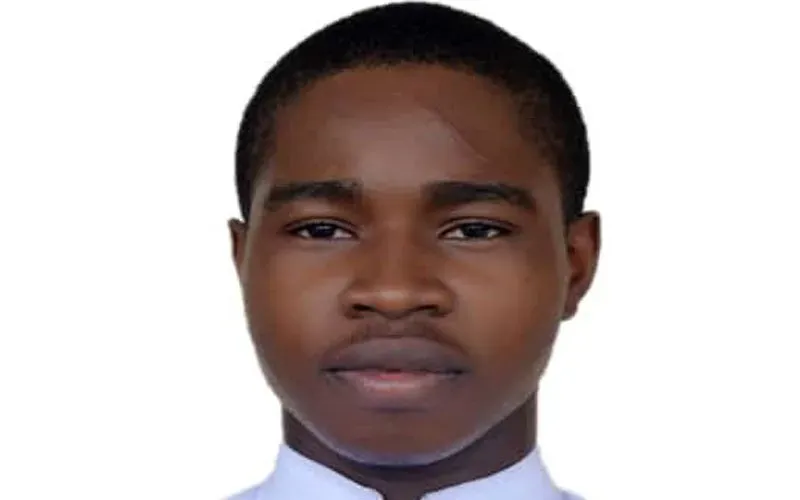They were to feed from a single “very dirty” container. The Seminarian narrated, “They served us with rice in a very dirty container that they used to fill fuel in their motorbikes.”
“Sometimes we ate once in a day and very few times twice,” he further shared, and added, “Bathing was not there; the clothes we went with are the same cloth we came back still wearing.”
After one of the four Seminarians was freed in a critical condition, the three decided to engage in a collective Novena prayer to give each other hope and encouragement.
“Every week before our release, we started a collective kind of novena prayer, where every person would lead for three days, one Our Father, one Hail Mary, and one Glory be to the Father, and then followed by some encouragements,” he recalled.
He added, “Seminarian Nnadi did not finish his shift; he was killed on the second day he was supposed to lead the prayers.”
(Story continues below)
On the day that Seminarian Michael Nnadi was killed, Seminarian Tabat recalled the leader of the abductors who had been their tent of captivity regularly asking them, “You people are still here? They have not killed you?”
The abductor would later break to them the news of Seminarian Michael’s death, and urge them to remain faithful to their captors lest they be killed the following day.
“That night was one of the longest nights in my life. When morning came, they gave us phones to call our parents and bid them goodbye before they kill us. We did and went back to the tent living our lives in the hands of God,” he narrated.
He continued, “We were not killed that day; three days later, after they had killed our brother, they told us that we are going to be released. It sounded too good to be true, after spending 24 days in captivity.”
Speaking at the March 8 virtual event, Archbishop Ndagoso said that being in charge of souls, and listening to such painful stories as narrated by Seminarian Tabat is what they go through as shepherds.
The Local Ordinary of Kaduna Archdiocese said that his Metropolitan See covers the region that has been a center of violence for a long time “even before the Boko Haram militia group started.”
He said that some of the conflicts in Kaduna Archdiocese “are ethnoreligious, some purely religious and lot of them just total conflicts.”
“Kaduna is dominantly inhabited by Muslims and as you go further to the north, the number of Christians keeps decreasing. It is very difficult to get permission to build churches; a license to build a social center is easily given but not a church,” he said.
The 63-year-old Archbishop who started his Episcopal Ministry in May 2003 as Bishop of Nigeria’s Maiduguri Diocese added, “Christians in this part of the country live in persecution.”
Silas Mwale Isenjia is a Kenyan journalist with a great zeal and interest for Catholic Church related communication. He holds a Bachelor’s Degree in Linguistics, Media and Communication from Moi University in Kenya. Silas has vast experience in the Media production industry. He currently works as a Journalist for ACI Africa.





